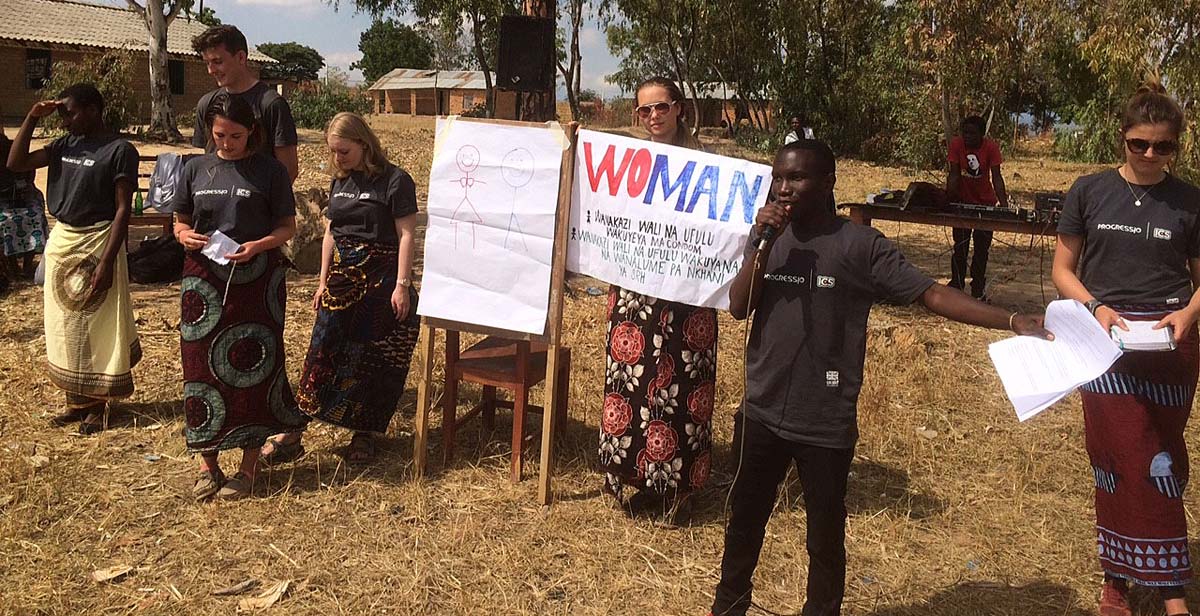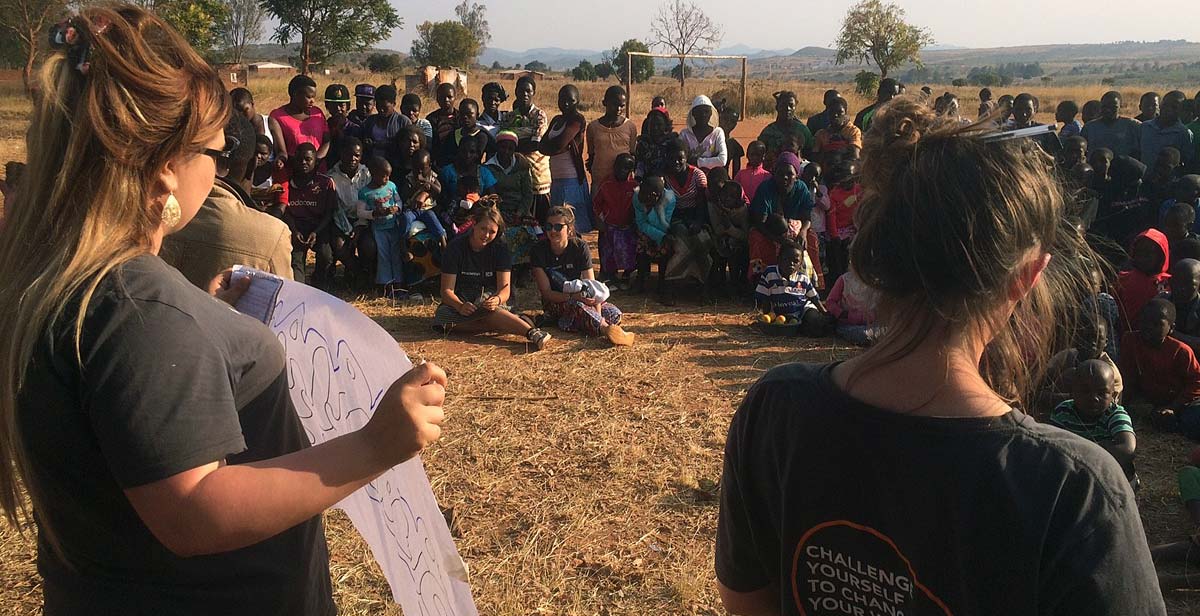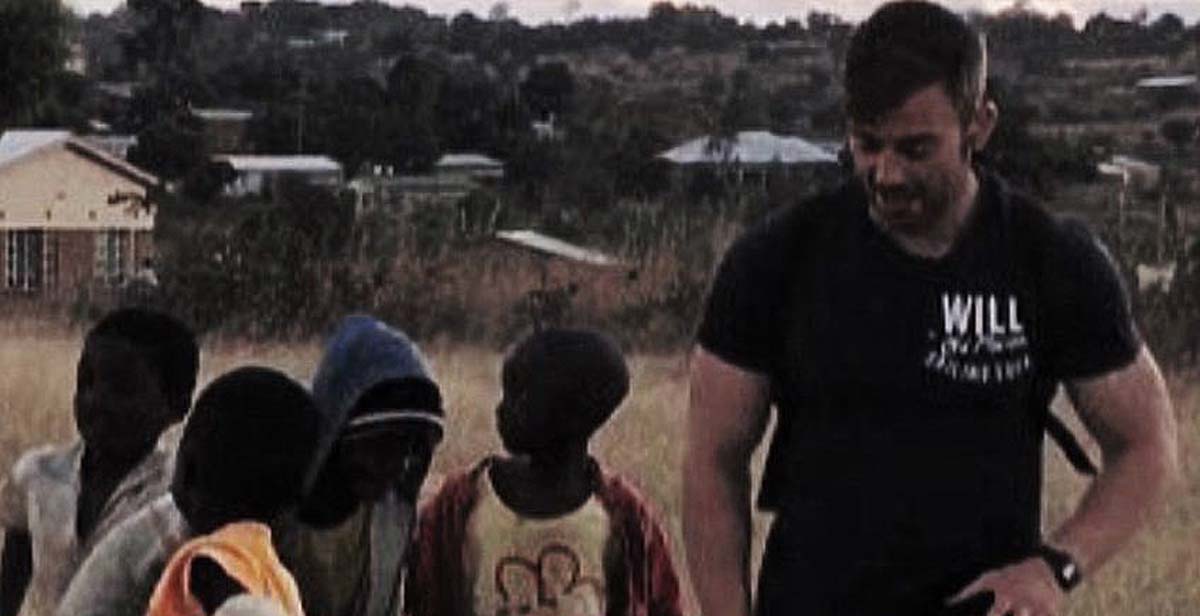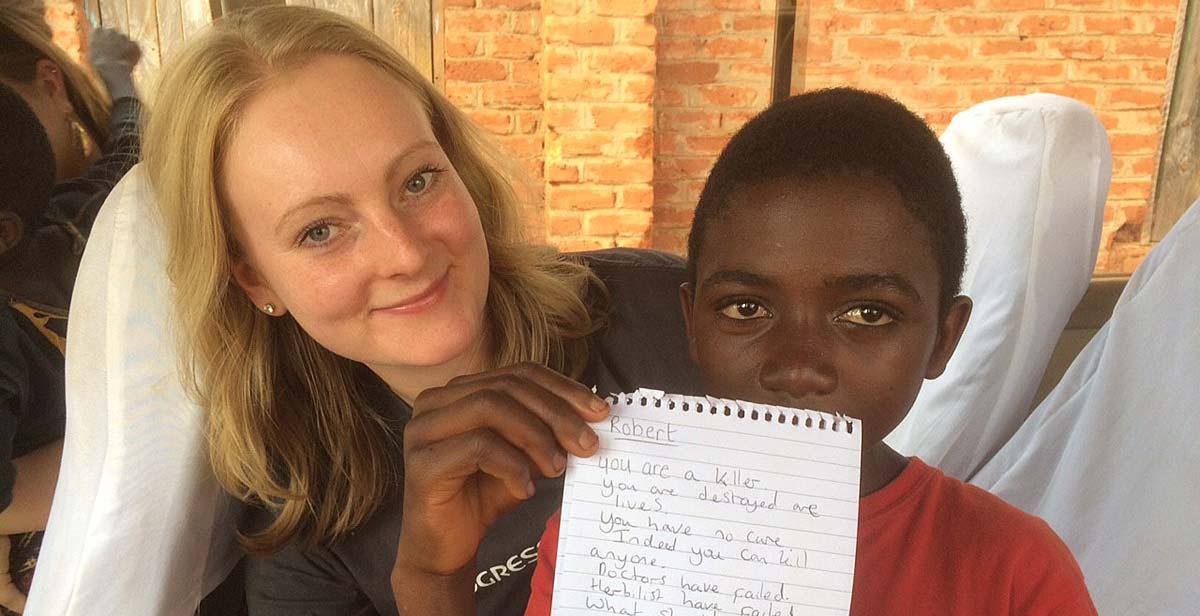Encountering cultural myths
Within our team we are facing many challenges in the field to combat issues around gender equality, HIV and sexual reproductive health, in addition to disability rights, whilst all developing as individuals. We have already completed two awareness days and three outreach sessions. We are currently planning to deliver three peer education sessions and learning a lot along the way. It is safe to say we have our hands full.
One of the issues that we aware of currently is how cultural myths play a big part of our role. Currently around one in every 10 Malawians carry the HIV virus. It is vital that we educate rural communities that HIV can NOT be cured by having sex with an albino, virgin or a child and that these common misconceptions will increase the spread of the virus. We are also trying to empower women to speak up in these communities and ensure that their roles aren’t bound to cooking and cleaning. Women can make important and life changing decisions as successfully as their male counterparts. The current UK Prime Minister and the favoured next US president, are prime examples of this.
Other myths that have become apparent in the rural communities involve the ritual young girls must go through upon starting her menstrual cycle, whereby she is unable to leave the house and consume salty products until her period had finished. At the end there is a celebration devoted to the transition of a young girl becoming a woman. In some villages in the southern regions (we are in the northern regions) there is also the tradition where an experienced older man, or woman, may be hired to teach the young girl how to perform in the bedroom.

Presenting a gender equality awareness Session in Kazomba
Whilst some of these cultural myths have been rather challenging to understand, as a group we recognise the importance of addressing the truth in order to help see the communities’ perceptions change. This is giving all of the volunteers a sense of accomplishment, and enables us to really change lives whist we are here.

An awareness session in Champhira
Cultural differences - Part 2
More cultural differences that we have discovered between the UK and Malawi are:
- It is culturally unacceptable here for women to smoke and drink even though 70 percent of Malawi’s exports are in the tobacco industry. A cigarette packet here costs 70 pence or 700 Kwacha (the Malawian currency) and a Carlsberg beer is 55 pence, not that we have tried beer due to this being a dry programme!
- In the UK, exercise is seen as a common daily routine to stay fit and healthy, however in Malawi it is uncommon to exert any unnecessary effort. Many of our Malawian host families do not understand the concept of exercise but are gradually getting used to us partaking in it. By way of balance, Malawians do not eat dessert after dinner, which is very common in the UK.

Harry keeping his exercise routine up whilst kids giggle and join in
- In the UK, a crop top and shorts is a common attire for a hot sunny day. This morning when I attempted to wear that outfit out of the house I became aware that anything worn above the knee signals that you are a prostitute and a mid-rift will give men the wrong idea. I changed my outfit immediately.
- In the UK, on the television there is every channel you can imagine! In Malawi 95 percent of the television shown is to do with religion and Jesus Christ including the devil spirit being extracted from people through prayer. However, I did enjoy watching Mission Impossible, as suggested by my host bother yesterday evening.
- In Malawi, sweet cakes are uncommon. Many of the cakes here lack the sugar content required in the UK to be deemed as desirable. This is combatted by having up to six sugars in one cup of tea. I still remember the shock of my host Mama when I said I didn’t take sugar in my cup of tea! This combatted with the Malawian snack sense makes an interesting combination. As a snack in the UK we may eat a piece of fruit or a biscuit. In Malawi, a chicken samosa and a cake on the same plate, or a chicken wing and scone together is standard!
We are so grateful to continue learning about the amazing differences between cultures and fully embrace the culture we are surrounded by for the next two months.
Written by ICS volunteer Kimberley Hagues



